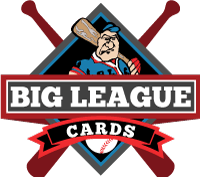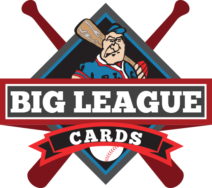Inside the Pack: Morality in Collecting
Last week I met up with a friend of mine who’s a rabid wrestling fan. In the course of conversation, he asked me a question that he had some difficulty articulating and I had some trouble answering. The question, more or less, boils down to this: In this age of uncovering all of the bad things famous people have done or stood for, is it okay to feel comfortable collecting (and displaying) autographs or memorabilia from an athlete who everyone knows has done unsavory things?
Both my friend and I were on the same page when it came to people who committed horrible crimes: neither of us would entertain collecting a murderer, for example. But that’s us and clearly not everyone. A convicted murderer like Aaron Hernandez saw his prices skyrocket after his arrest, and his items still sell (a signed and framed jersey/photo combination sold on eBay for $10,000 in September!). An alleged (but acquitted) murderer like O.J. Simpson still has a highly sought-after rookie card, with a PSA 9 selling for $4700 in January.
What about other problematic figures? My friend specifically asked about Hulk Hogan. He saw Hogan, one of his childhood heroes, when he was 4 years old, and later in life was able to meet him and get his souvenir signed. In 2015, Hogan became embroiled in scandals over racist comments he made on tape and a leaked sex tape with his then-best friend’s wife. Hogan has since apologized and fairly successfully rehabilitated his image, but it doesn’t negate the fact that those things happened. Should knowing Hulk Hogan used racist epithets erase his desire to remember an important moment in his life?
The question he posed to me related to my two major collections of Sandy Koufax and Duke Snider. I collect them because of my grandmother’s affinity for the Brooklyn Dodgers. If some upsetting news came out about them, how would my views of collecting their items change? Would I repress the memories of my grandmother’s stories, or continue collecting knowing that they were flawed individuals?
My friend shared with me that he has a tough time with crime-adjacent people as well. He has an autograph of Roberto Soto, a wrestler known as Invader 2. Soto has no scandal associated with him, but his tag-team partner, Jose Gonzalez, stabbed another wrestler to death in Soto’s presence. His involvement in the case was solely interpreting for the police when they arrived. But by virtue of being there and being associated with the murder, was it okay to display his signature in his home?
I started thinking about my own collections and if I had any crime-adjacent players in my personal stash. The first person who came to mind was Jose Fernandez, the young Marlins pitcher who electrified baseball during his short career before he died in a boating accident. I loved watching him pitch, and have had two of his rookie cards in my collection for many years. Fernandez was driving the boat at the time, and toxicology reports showed he had drugs in his system at the time. Along with himself, the crash also killed two of Fernandez’s friends who were with him. So, no, he wasn’t crime-adjacent. If Fernandez survived the crash, he would likely have been charged with, and convicted of, manslaughter. So how was he any different than the aforementioned Aaron Hernandez?
The answer is he’s no different, logically, but emotionally it feels different to me. Is it because of the nature of the crimes — one premeditated and one accidental? Maybe. More than that, though, I think it’s that Fernandez elicits great memories for me. It’s tough to separate emotion from logic, especially when you are in a collector’s mentality. More than objects, collectors collect memories: players they loved, saw play, heard stories about, and so on. A collection without a memory associated with it is not a collection that will last very long. In general morals are a very personal thing. With collecting, it’s no different. If something makes you feel happy because you have it, then collect it. If you feel even a slight doubt about it, consider collecting something else. There’s no one size fits all solution.




